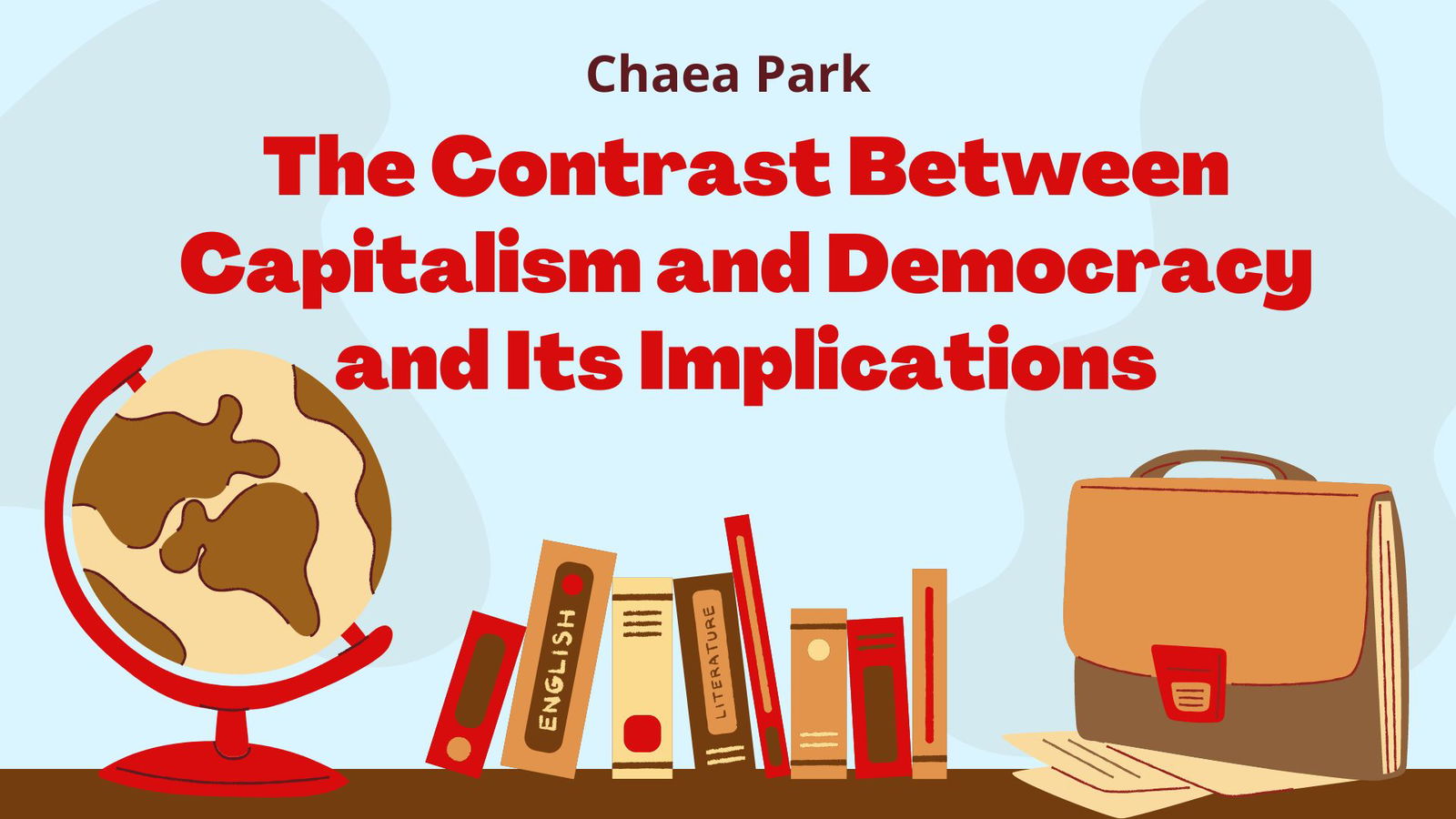The capital market operates based on the flow and concentration of money. Capitalists are the main actors in its operation, utilizing capital to manage workers and generate profits.
This concept is expanded to describe an economic system called capitalism, where the production and consumption of goods are based on profit acquisition.
On the other hand, democracy refers to a political system where citizens are considered the owners of the state, exercising basic rights, equality, the principle of majority rule, and the rule of law.
Since capitalism refers to the economic system and democracy to the political system, some argue that they cannot be directly compared.
Therefore, this article aims to describe the contrasting points based on their characteristics rather than comparing the systems.
Politics and economics coexist within a nation, and they inevitably influence each other. Capitalists dominate capitalism, while citizens belonging to the nation lead democracy.
When applied to society, this suggests that all citizens should have equal decision-making power, but discrimination based on social and economic classes is possible.
Individuals with more capital may have broader and more diverse opportunities, whereas those with less may face limited opportunities.
This socioeconomic disparity is observable throughout society, such as in access to quality education and the freedom to express opinions without constraints.
Although the opposition between democracy and capitalism may not be conceptual, it can be explained by their essential elements.
From the perspective of democracy, society should empower individuals, providing equal opportunities for all.
However, capitalism, with its economic disparities, can result in unfavorable outcomes for individuals based on their economic status.
Harvard philosophy professor Michael Sandel, in his book “What Money Can’t Buy,” argues that virtually nothing exists that money cannot influence, emphasizing the need to discuss the serious implications of rampant materialism within the framework of democracy.
He suggests that ethical regulations, rather than blindly following the direction of society and capital, are necessary.
People often discuss justice and emphasize its importance in the community. However, individuals may face challenges when trying to apply these principles to society.
To bridge this gap, a critical analysis of societal issues, even those considered conventional, is essential.
In practice, capitalism and democracy significantly influence each other. The first precondition for the rational execution of the discussed justice is the formation of a society that respects individuals.
By basing respect on the ability of individuals to exercise rights higher than capital and power, a society closer to justice can emerge.
Evaluating the situations and outcomes faced by individuals can help determine what is right or wrong, and if external factors related to materialism significantly impact judgments, capital may overwhelm individual existence.
To address this value distortion, individuals and society must recognize that capitalism and democracy fundamentally possess conflicting attributes.
Based on this awareness, an environment for free discussion on prevalent societal issues should be fostered.

